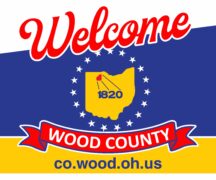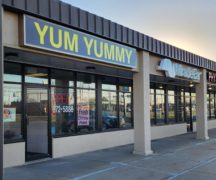By JAN LARSON McLAUGHLIN
BG Independent News
Selling hotdogs and slushies can help keep ball teams in business. But one Wood County Board of Health member is asking if food service licenses are taking too big of a bite out of non-profit operations.
D.J. Mears voiced his concerns at a health board meeting last week about the fees charged to non-profit groups to operate concession stands. In some cases, he said, the operations are charged the same as restaurants.
But Lana Glore, director of environmental services at the health department, explained that in most cases the fees are not an issue since school districts accept responsibility for the non-profit concession stands.
It’s only when the school district doesn’t that parent groups have to pay a separate fee.
The fees are based on the risk level of the foods being sold – and the inspection time it takes for health department sanitarians.
“We have no desire to over-license facilities,” Glore said.
Mears suggested that non-profit groups that depend on the concession stand profits should be charged a lower fee.
“Little leagues or soccer leagues – we should be considering them at different levels,” he said.
Glore also explained that all the food service fees have been approved by the board of health.
There are ways around the food service operation fees, she said. Some parent groups sell all pre-packaged food items so they don’t need a license. Others offer the food items for donation only – without suggesting an amount for each item.
“There are some options,” Glore said.
Glore said she understands the difficult situations faced by some non-profit groups.
“It’s been a tough year for people who haven’t been able to fundraise,” she said.
But the fees must cover the food inspection program costs – which increase according to the potential risks to the public.
“It’s all about food safety,” Glore said.
Following are the differences in food service licenses
- A Food Service License is issued to a location or area where food is prepared and served in individual portions. Examples include restaurants, cafeterias, and schools.
- A Retail Food Establishment License is issued to a facility that sells prepackaged food items, or sells multiple servings of food products. Examples include grocery stores, gas stations, and most pizza shops.
- Temporary Food License: Issued to a facility that is operated at an event for no more than five consecutive days.
- Mobile Food License: Issued to a moveable structure which must change locations at least once every 40 days.
- Vending Machine License: Required if you sell food that requires temperature control (frozen, refrigerated, or hot food). A license is also required if the food is dispensed in an open container or cup, such as coffee, soda, soup, or hot chocolate.
- Micro Market License: Issued to an unmanned store generally located within an office building or factory. This facility offers TCS (temperature control for safety) and non-TCS food items for purchase via self-checkout kiosk. In addition, specific equipment is required. Coolers and freezers must have health switches that will automatically be activated in the event of a temperature control issue or power failure.
The fees for food service operations range from $250 for a small commercial operation with a low risk level, to the highest rate of $1,278 for a large commercial operation with a high risk level.
All the fees include a $28 charge that goes to the state.
The fee for mobile food service operations is $243, for micro markets is $250, and for a vending operation is $26.
The fee for a temporary operation is $60.





